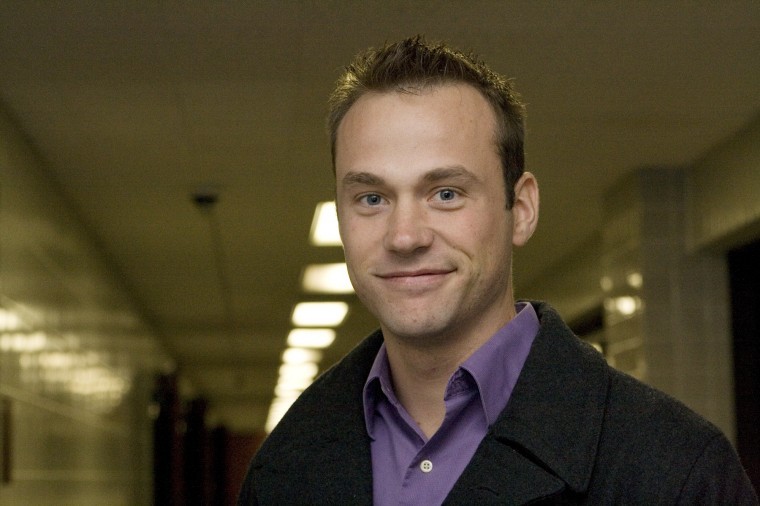Returned soldiers open up on experiences
Student veteran Levi Kammes served in the United States Marine Corps for four years and is now a junior anthropology major and president of the NIU Veterans Club.
November 11, 2011
While he was working at a Target warehouse, Iraq veteran Levi Kammes was startled one day when he heard the pop, pop, pop of a nail gun.
Kammes looked around nervously for a moment, but realized he was in DeKalb, a city about 6,000 miles away from Fallujah, Iraq.
“When you’re in the military, loud noises usually mean something is going to happen,” Kammes, junior anthropology student and president of the NIU Veteran’s Club, said. “It makes you a little nervous and wary, but you have to know where you’re at.”
For Kammes and some other NIU student veterans, today is important because it’s Veterans Day, but the military experiences they’ve had and the unique bond that holds them together will last a lifetime. They all might not have worn the same uniform, but they see a commonality in the fact that they all did pledge their lives for this country.
What they share
Business graduate student Jason Bender, who served in the Navy for six years, sees similarities between himself and other veterans.
“The freedoms that everybody takes for granted – like the ability to occupy Wall Street or to write a column for a newspaper – are all because those of us that have worn a uniform did what we did to maintain democracy in our country,” Bender said.
Because it was a personal choice to serve, Kammes said student veterans want to improve their lives and others by volunteering in the community.
Shaun Quimby, senior accountancy major, said it doesn’t matter if a veteran did one tour or a 20-year career in the Navy as he did; all veterans share a sense of commitment and are more disciplined because of their service.
‘A totally different world’
For some veterans, like Kammes, adjusting from being a Marine to a student was like shifting to a “different culture.”
Dealing with the uncertainties of everyday life made it hard for Kammes to assimilate into college life at first. After living for four years in a structured military lifestyle where his whole day and week were planned out for him, choosing his own class schedule for the first time felt strange to Kammes.
“I wasn’t in charge of anybody anymore,” Kammes said. “I was only in charge of me, so it was a little bit different.”
Quimby said he struggled with time management during his first two months in college; he had to gain more self-discipline because there was no one yell at him if he complete his schoolwork.
“Coming to college I was like, ‘Oh, I was in the military I can handle this no problem,'” Quimby said. “Then I realized it’s a totally different world.”
A unique set of experiences
Bender said it’s important for veterans to support each other because they have experiences to which most students can’t relate.
“For me to talk to other college students about following a foreign unfriendly submarine and the risks associated with that … they could never relate to that, because their experiences are limited to high school, college and maybe a job here or there,” Bender said.
Bender said some 19-year-olds are taking general education classes in college or working jobs at places like McDonalds, which makes it harder for them to relate to his experience of operating a nuclear reactor at that age.
“The military gives you a whole different level of responsibility and expectations than the civilian world does, and it’s because of the monumental difference in what you do,” Bender said. “It’s flipping burgers versus helping to defend a nation.”
Charles Jones, sociology and political science major, served in the United States Marine Corps for almost 10 years. He said it’s important for veterans to have a support system so that they can transition from military life to academia.
Quimby said swapping stories and supporting each other are some other ways that veterans can feel that they aren’t alone.
“It’s important for veterans to support each other because we have a certain bond that regular, traditional students don’t have,” he said.
No regrets
When Kammes was patrolling areas in Fallujah, he was aware of the potential danger surrounding him and felt scared. At the time, Kammes was more afraid of getting wounded than being killed.
“Everybody’s scared of getting killed,” Kammes said. “But if you come back and your arm or leg is missing, that is one of those things that’s going to linger with you for the rest of your life.”
Despite the dangers Kammes faced, he never regretted his decision to join the marines.
“It gave me the attitude that life is too important to be wasting it,” Kammes said. “So going to college, working as hard as you can and being the best you can be are all good ideas.”







